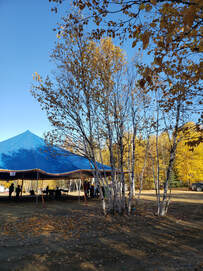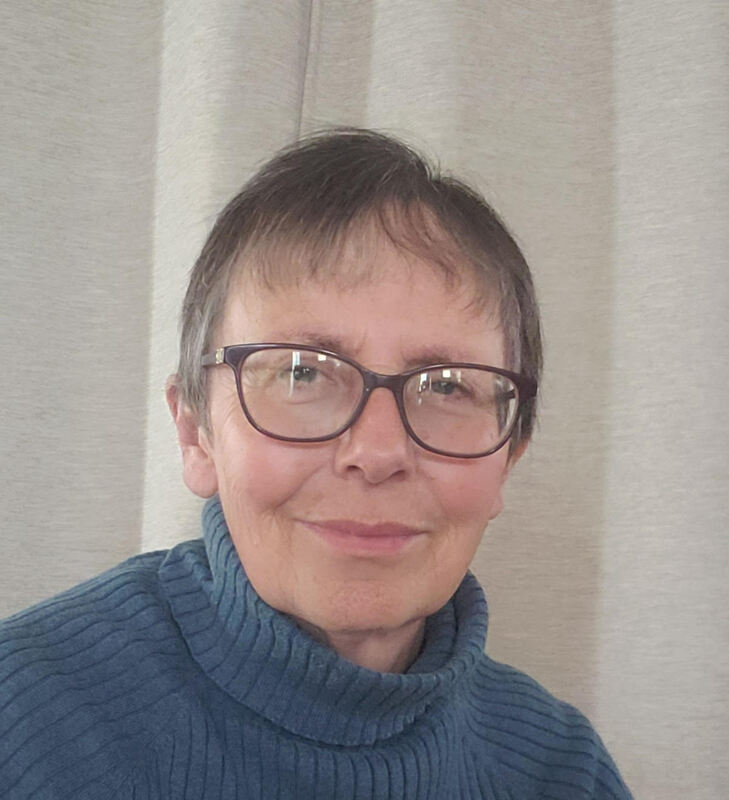AuthorAnne M. Smith-Nochasak: Archives
July 2024
Categories |
Back to Blog
Sometimes, ‘A’ Is for Dog!1/7/2022  I want to step past my fears and re-enter Julie’s world, the world of special education marvels and the stories behind the stories. Like Julie, we must come to accept Tina as a human being of vibrant potential; we do not define her by her disability. And we do not define her by our expectations. In the eighth month of the sixth grade, Tina demonstrated vocabulary recognition equivalent to that of a child in the fourth month of the third grade…. Perhaps Tina was sick that day, her stomach cramping and her attention lagging. Or, possibly, someone had stolen her dog that day, and vocabulary recognition was not her main concern. Is Tina’s first language English, or perhaps a dialect of English that differs in content and patterns from the standardized test? The tests indicate a pattern of need, but is this pattern Tina?
The Christmas season draws to a close. Shall I write about the loneliness of the season, the bewilderment as we sink in flames in the most horrific wave of the pandemic to date, or the fears and struggles of family illness and surgeries? No. I want to step past my fears and re-enter Julie’s world, the world of special education marvels and the stories behind the stories. Like Julie, we must come to accept Tina as a human being of vibrant potential; we do not define her by her disability. And we do not define her by our expectations. A parent once exclaimed to me in tones of despair: “My kid is special ed.” I could only answer: “No, your child is Mary. And yes, she is special, because all children are special. True, she is having problems with the work we give her. Special ed is simply better work, meaningful work, something WE do to teach Mary the way she is meant to be taught.” Over the years, children have taught me these key points:
Seemingly innocent remarks can break hearts. I sat with a twelve-year-old student, coaching him with his ESL lesson on the five senses. “What do you do with your eyes? You see. What so you do with your ears? You hear!” He seemed to be getting it, when he suddenly burst into tears and could not be comforted. My apologies and bewilderment made no difference, and the boy departed for lunch, leaving me baffled and worried. Halfway through my lunchbreak, the light burst over me. “What do you do with your nose? You smell!” Student face crumpled. “Yes, you smell,” I nodded. I believe that tears are justified when a person in authority tells you repeatedly that you smell. Why didn’t I say, “What do you use your nose for? You use your nose to smell. You use your nose to smell wood smoke, to smell partridge cooking….” We need to plan. And we need to accept that it is our phrasing that smells sometimes. A sound in one ear can be two sounds in another. My grade six student wrote about his trip to the Big Rabbits in his journal. He sounded it out carefully. In his language, there is no /b/, no /p/ There is < and that is both. A b-p that is neither b or p exactly. Hold your palm before your face. Make the /b/; feel the puff of air on your fingers. Make the /p/ and feel it press to your palm. Make < and it falls between. Try ‘/t/ and /d/. His sound lies between. His eyes widened when he learned that in English, there were two sounds to watch for. Once he knew, he could apply his knowledge. There was no spelling problem; from his language base, rabbits and rapids had sounded the same. Beware Grade 8’s providing second language lessons. When the eyes dance as students teach new vocabulary, it is best to refer to a second source. My first English class offered to teach me their language; if I told them to sit down, loudly and clearly, they assured me that they would immediately sit down. Well, they were in one sense right; the term they provided is usually produced in a sitting position. I hope that at least one of them is reading this! They might not remember, but they opened my mind in so many ways and I am forever grateful. Thus, years later, when teaching phonics to a group of happy ten-year-olds, I could enjoy their laughter. “This sound is ‘meu’,” I explained. “For this one, you say ‘meu’, not MOO.” As the sound left my lips, I knew what I had done. They tilted back their heads and howled with laughter, molars shining in the recesses of their mouths. This translates, in their language, to the word that does not mean ‘sit down’ in another. A corollary lesson comes also from my first year. “How was your first morning?” I asked the new teacher. “Great!” she replied. “But there seem to be so many students named Atsuk. I wonder what it means?” Literally, it means “I don’t know”, but it can mean much more: Forgive me, for I am shy and I am not ready to tell you my name yet. I am not sure what to say, what to do. Please be patient with me. When they are ready, when they are safe with you, they will teach you many things. A is for dog, and B is for cat. I am so proud of my Grade 1 phonics group. We are matching beginning sounds with words and they are doing it well! Now we are on a felt board app, sliding objects into position beside letters. “We are looking for /a/ things, like /a/ for…. Apple…. alligator…. no, no! That is /d/ dog. Let’s find /a/ apple!” The little face scowls, and the tiny fingers shove the dog onto the /a/ line. I sigh and turn to another student. Goodness! They seem to be phonetically challenged!! This one is pushing the cat into position beside the /b/. “That is /c/ cat. It goes here.” “Nope,” he declares. “This is /b-p/ b-pisu!” Light surges across my mind. This is the word for cat in his language, and this…… this is not /d/ dog – this is /a/ animoosh! My nickname was Animoosh, for obvious reasons. (I only had two dogs, but many other dogs followed me.) Why did I not make the connection? It took a six-year-old boy (his dad and my son went to school together years back, point of interest) to remind me that phonics is not restricted to English! Their language has a phonetic base, and they were going to use it! So, enter the learning moment. Embrace the wonder that awaits when we honestly recognize the reality of children. Oh! I miss the wonder. As soon as I get medical clearance, I am going to strap on my mask, sanitize my hands, gird up my loins, and go back to learning!
0 Comments
Read More
Your comment will be posted after it is approved.
Leave a Reply. |
ANNE M. SMITH-NOCHASAK

 RSS Feed
RSS Feed
